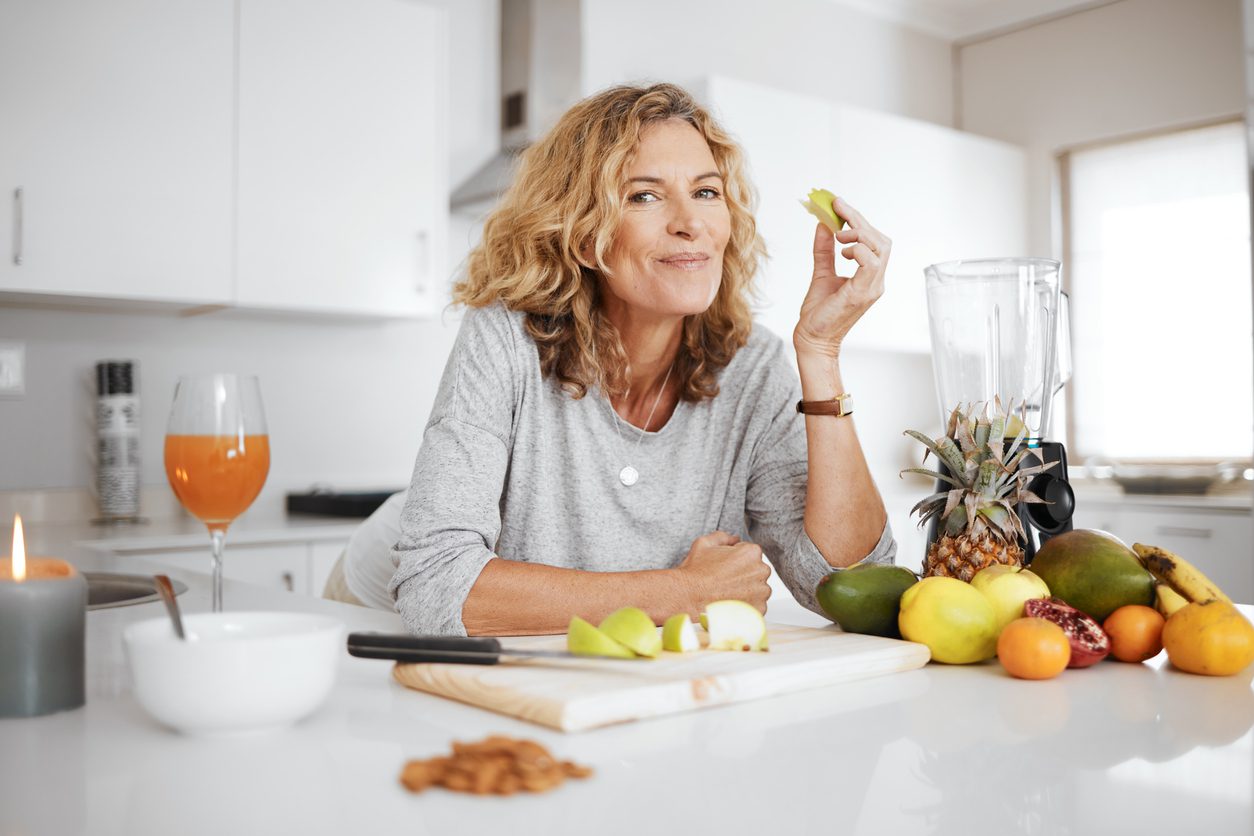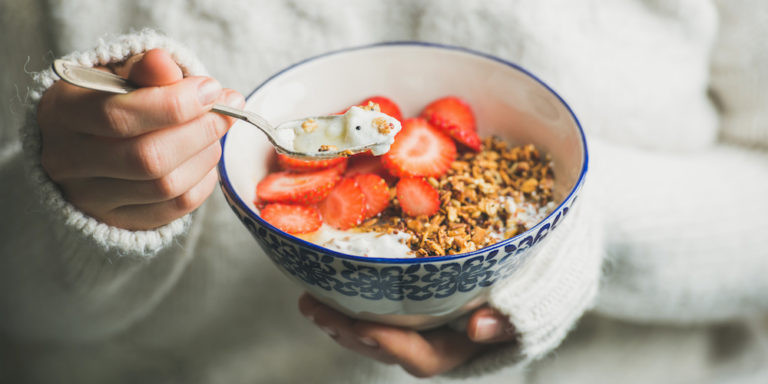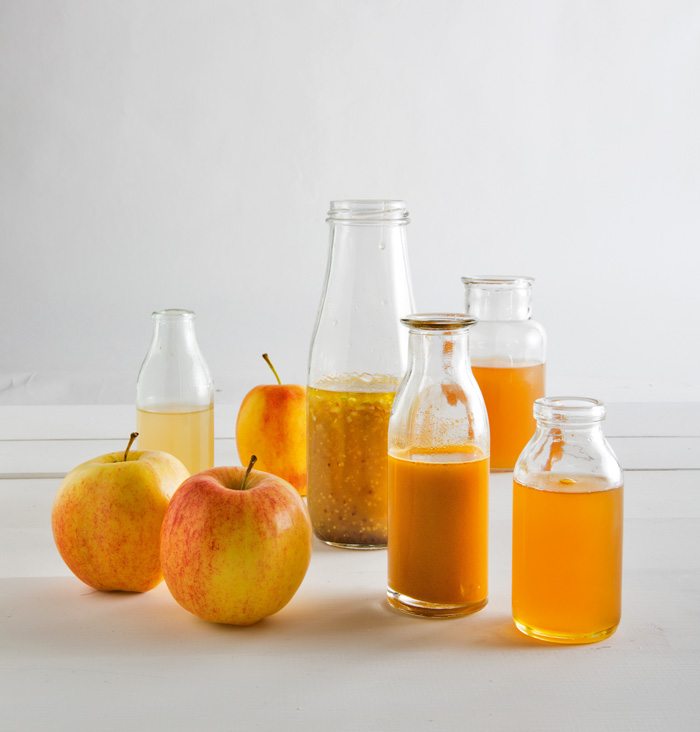Menopause is a time that some women look forward to, while others approach it with apprehension. It usually occurs around the age of 45 but can start earlier for some women. As a woman matures, her ovaries slowly start to produce less oestrogen, gradually leading to menstruation ceasing.
Hot flushes are possibly the most annoying of all menopausal symptoms, however, you can choose foods wisely to help cool the body and restore balance.
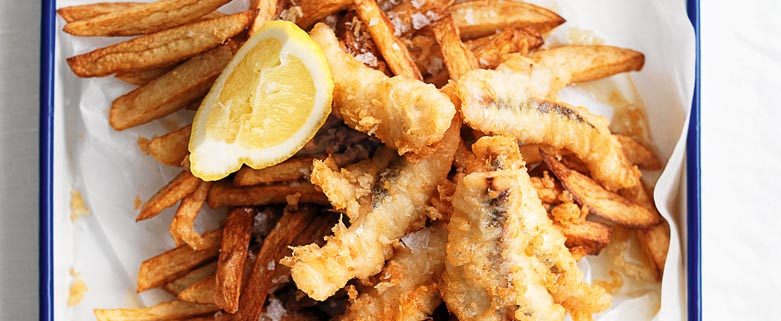
Avoid foods that ‘Heat’
Try to eat seasonal organic foods.
Avoid foods containing preservatives, additives and colourings, as the liver has to work overtime to process these foreign substances, creating heat in the body.
Deep-fried and oily foods raise the body’s temperature as they put stress on the liver. Avoid using oily bottled salad dressings, animal fats and blended vegetable oils in your cooking. Watch the amount of nuts you eat; while the fats they contain are healthy mono-unsaturated fats, they can lead to the body overheating.
Avoid alcohol and caffeine, including caffeine-containing energy drinks.
Reduce the amount of meat you eat. Salted and processed sandwich meats, such as ham and salami, will raise the body’s temperature sky-high.
Avoid salty, sour and fermented foods as they create heat in the body. These include canned fish in brine, fresh breads with yeast (especially sourdough), soy sauce, salted crisps, corn chips, sour cream, hard cheeses, yoghurt, tomato sauce, vinegar, pickled vegetables, miso and sauerkraut.
Women who eat a lot of sushi may be unaware that the soy-and-wasabi dipping sauce and the cup of miso are fuelling their hot flushes.
Certain vegetables warm the body
Eggplant, horseradish, mushroom, raw onion, radish, silverbeet, raw beetroot, turnip, chilli and tomato should therefore be avoided. Sour fruits such as lemon, grapefruit, rhubarb, green papaya, green mango and peach aggravate hot flushes.
Spices that heat the body and should therefore be avoided include allspice, cayenne, garlic, mustard, fenugreek, paprika, rosemary, sage, thyme, oregano, bay leaf, cloves and nutmeg. Black pepper should be used in moderation.
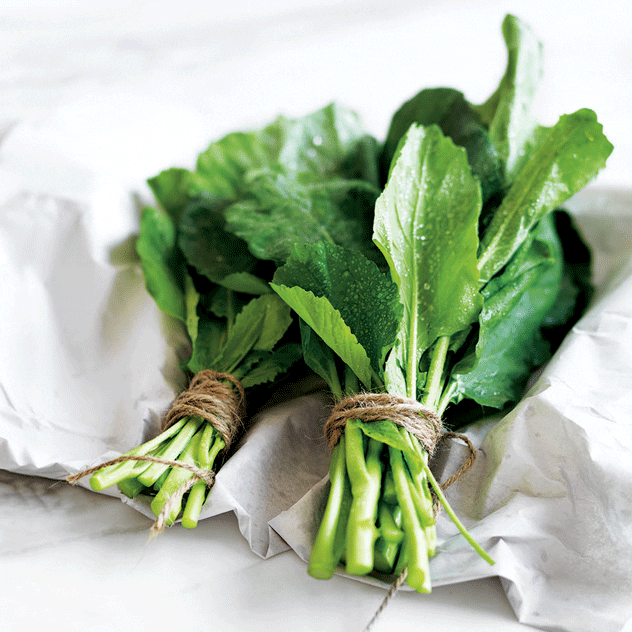
Eat foods that ‘Cool’
Favour cooling, sweet and bitter vegetables such as cucumber, leafy greens (except spinach), cooked beetroot, cabbage, celery, potato, sweet potato, sprouts, fennel, asparagus, beans, zucchini, carrot, artichoke, snow peas, coriander, broccoli, cauliflower, peas, rocket, watercress, lettuce, endive, pumpkin, kale, radicchio and parsnip.
Increase the amount of refreshing herbs you use in your cooking. Grow basil, mint, coriander, thai basil, dill, fennel and curry leaves in your garden. Add them to everything, from soups, salads, wraps, pasta, vegetables and stir-fries to fruit salad, teas and juices.
Start a herbal tea drawer and fill it with chamomile, dandelion, fennel, liquorice, mint and red clover.
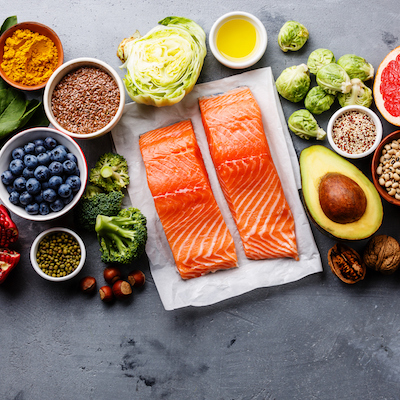
Enjoy eating sweet, juicy fruits and a selection of dried fruits, including berries, dates, figs, orange, pineapple, plum, prunes, raisins, melon, purple grapes, avocado, coconut, pear, pomegranate and mango. Start juicing a combination of those fruits and add a handful of fresh herbs for extra cooling.
Ensure you’re always hydrated. Drink plenty of water at room temperature. Resist the temptation to drink ice-cold water, which can lead to digestive problems.
Tips for cooking
When cooking, favour ghee, olive oil or sunflower oil and measure the amount of oil you need to use. Steaming and stir-frying in water are healthy, cooling alternatives to pan-frying. Crumbed foods can be baked instead of deep-fried.
Use juices instead of oil in your salad dressings. Better still, become used to eating salad greens without dressing. If you really want oil-based dressing, make your own and spray it onto your salad.
Choose freshwater fish over other seafood. Freshwater fish such as barramundi, trout, murray cod and silver perch can be baked, grilled, steamed or barbecued in foil.


